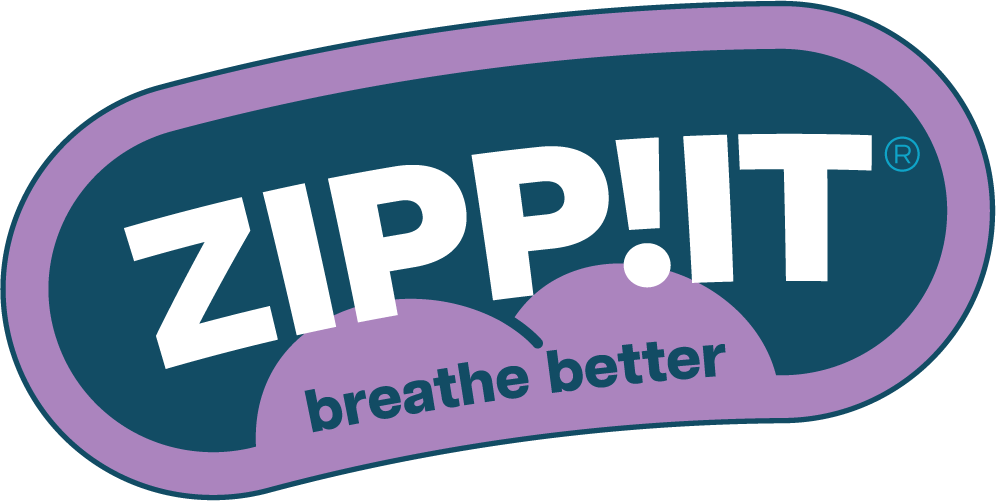Bad breath from mouth breathing? Here’s what you can do about it
Mouth breathing is a common issue that many people underestimate, especially when it comes to its impact on your oral health and social interactions. Millions of people worldwide unconsciously breathe through their mouths, both during the day and at night, without realizing the consequences this has for their breath and overall well-being. This seemingly harmless habit can trigger a cascade of problems, including dry mouth, reduced saliva production, and ultimately that unpleasant odor we all want to avoid.
The problem often only becomes noticeable when others make subtle comments or when you yourself notice that unpleasant taste in your mouth. Mouth breathing disrupts the natural balance in your mouth, allowing bacteria to multiply freely. This article offers you concrete insights and practical solutions to tackle this problem. You’ll not only learn why mouth breathing leads to bad breath, but also how to take effective measures to restore your oral health and regain your confidence.

Why mouth breathing causes bad breath
The link between mouth breathing and bad breath lies in the fundamental way our respiratory system is designed. When you breathe through your nose, the air is filtered, humidified, and warmed before it reaches your lungs. Your nose acts as a natural air purification system, blocking dust, bacteria, and other particles. Additionally, nasal breathing stimulates the production of nitric oxide, a substance with antibacterial properties that contributes to a healthy oral flora.
Mouth breathing dry mouth occurs because the constant airflow through your mouth causes saliva to evaporate. Saliva is crucial for your oral health because it:
- Washes away bacteria and food particles
- Neutralizes acids that attack tooth enamel
- Contains enzymes that support the first step of digestion
- Has a natural antibacterial effect
Without enough saliva, anaerobic bacteria get the chance to multiply rapidly. These bacteria produce sulfur compounds responsible for that characteristic, unpleasant odor. The process often worsens at night, which explains why many people suffer from mouth breathing morning breath. During sleep, saliva production naturally decreases, but mouth breathing from sleeping with an open mouth dramatically intensifies this effect.
Medical research shows that people who chronically breathe through their mouths produce up to 50% less saliva than nose breathers. This deficiency creates an ideal environment for bacterial growth, especially around the gums and between the teeth, where food particles can remain.
Recognize the signs of mouth breathing and halitosis
Mouth breathing halitosis manifests in various ways, and recognizing the early signs can help you intervene in time. Many people only notice the problem when it’s already advanced, but there are subtle clues you can learn to recognize.
The most obvious signs are:
- A dry, sticky mouth – especially in the morning after waking up
- Frequent thirst – your body tries to compensate for the lack of moisture
- A white or yellowish coating on the tongue – these are bacteria accumulating
- Gum irritation or inflammation – mouth breathing gum problems develop gradually
- A sour or metallic taste – especially noticeable after eating
Mouth breathing saliva production issues also show up in practical daily situations. You may have noticed that you often need to lick your lips, wake up at night with a dry mouth, or need to drink more often during conversations. These signs indicate that your mouth breathing oral hygiene routine needs adjustment.
Some people also develop habits that mask the problem but don’t solve it, such as:
- Constantly chewing gum
- Excessive use of mouthwash
- Avoiding close social contact
- Speaking with a hand in front of the mouth
It’s important to understand that halitosis from mouth breathing often follows a cyclical pattern. Stress can worsen mouth breathing, which leads to more dryness and bacterial growth, which in turn causes more stress about the social consequences.
Effective solutions for bad breath caused by mouth breathing
Fortunately, there are proven methods to deal with bad breath mouth tape and other mouth breathing issues. The approach should be multifaceted, targeting both the cause and the symptoms.
Natural solutions for bad breath mouth tape start with retraining your breathing pattern. Conscious nasal breathing during the day is the first step. Practice breathing through your nose regularly throughout the day, especially during activities like working at the computer, walking, or light exercise. Set reminders on your phone to check your breathing.
Mouth tape is becoming increasingly popular as a nighttime solution. This special tape is designed to keep your mouth closed during sleep, forcing you to breathe through your nose. It’s important to use only medical tape specifically made for this purpose. Start carefully and stop immediately if you experience discomfort or breathing problems.
Other practical solutions include:
Stimulating saliva production:
- Chew xylitol-containing gum (not sugar-based)
- Drink small sips of water regularly
- Eat foods that require chewing, such as raw carrots or celery
- Use a humidifier in your bedroom
Optimizing oral hygiene:
- Brush your teeth and tongue at least twice a day
- Use dental floss or interdental brushes daily
- Rinse your mouth with an alcohol-free mouthwash
- Replace your toothbrush every three months
Lifestyle adjustments:
- Avoid alcohol and caffeine before bedtime
- Quit smoking, as this worsens dry mouth
- Eat fewer processed and sugary foods
- Ensure adequate vitamin C and zinc in your diet
The combination of these methods works synergistically. While mouth tape normalizes your breathing at night, daily habits ensure your oral flora remains balanced and your saliva production is stimulated.

When professional help is needed
Although many cases of mouth breathing can be resolved with simple adjustments, there are situations where professional guidance is essential. Dentists and medical specialists have access to advanced diagnostic tools and treatment methods that can make the difference between temporary relief and a permanent solution.
Seek professional help when:
- Symptoms persist despite consistent application of the above measures
- You suffer from chronic dry mouth that affects your daily life
- There are signs of gum or dental problems
- You suspect underlying medical conditions play a role
- Medications you use contribute to the problem
A dentist can thoroughly assess your oral health and identify any structural issues contributing to mouth breathing. Think of misaligned teeth, enlarged tonsils, or chronic nasal blockages that make nasal breathing difficult.
Additionally, certain medical conditions such as diabetes, sleep apnea, or reflux disease can be underlying causes of chronic mouth breathing. A general practitioner can investigate these possibilities and refer you to specialists if necessary.
Modern treatment options also include innovative solutions such as saliva substitutes, custom mouthpieces for nighttime use, or breathing therapy. These professional interventions can be especially effective when combined with the self-care measures mentioned earlier.
Take action against mouth breathing today
Mouth breathing and the associated bad breath don’t have to be a permanent problem. With the right combination of awareness, practical measures, and professional support where necessary, you can significantly improve your oral health. The key is to understand that this is a complex issue that deserves a holistic approach.
Start today with small steps: pay conscious attention to your breathing, improve your oral hygiene routine, and consider using aids such as medical mouth tape at night. Remember that change takes time, but every step in the right direction brings you closer to fresh breath and greater self-confidence. Your social interactions and overall well-being will noticeably improve when you tackle this problem consistently. Don’t hesitate to seek professional help if you notice that self-care isn’t delivering sufficient results.


